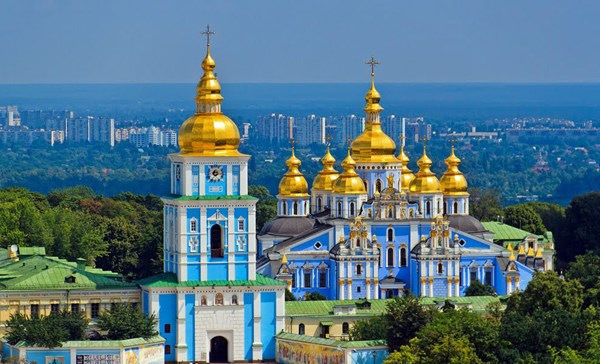Ukraine establishes autocephalous orthodox church
On Saturday, December 15, the Unifying Assembly of Ukrainian Orthodox Confessions, under the auspices of the Ecumenical Patriarchate, ruled to establish an autocephalous (independent) local Orthodox Church of Ukraine (OCU). The assembly also confirmed the church charter, and elected Metropolitan Epiphany, patriarchal vicar of the former Ukrainian Orthodox Church of the Kyiv Patriarchate (UOC KP), as primate of the new church. Ukrainian religious scholars and political experts believe that this historic development will put an end to the church schism in the country.
39 year-old Metropolitan Epiphaniy, head of the OCU, is considered the “right hand” of former UOC KP Patriarch Filaret. He holds a doctorate in theology and was previously a permanent member of the UOC KP Holy Synod. Until recently, he was a rector and professor at the Department of Biblical and Philological Disciplines of the Kyiv Orthodox Theological Academy, and vicar of the St. Vydubychi Monastery in Kyiv.
Assembly participants described Epiphaniy as a person capable of leading independently, without giving in to external influences. “He is a highly educated person, who knows the Greek language, and has had dealings with Constantinople for many years, and furthermore, he is a skilled organizer and administrator,” commented religious scholar Yury Chernomorets.
The assembly was closed to the public and the press. The starting time was changed twice, both the day before it took place, and on the day itself. The other candidates for the role of primate were Metropolitan Mikhail of Lutsk and Volyn, and Metropolitan Simeon of Vinnitsa and Bar, believed to be the favorite of Ukrainian President Petro Poroshenko. However, members of the organizing committee denied that Poroshenko had a protégé or that he interfered with the voting in any way.
According to Andriy Yurash, Minister of Culture and director of the Department of Religious Affairs, the first round of voting had three winners, out of which it was “absolutely logical” that Metropolitan Epiphaniy was elected as Primate of the UOC, since he represented the largest faction present at the assembly. “Both votes were secret, and for the first time in history of Ukrainian orthodoxy, they were done according to all the canons of the Greek system. All assembly participants voted, including the laity,” Yurash observed.
The unifying assembly began two hours later than scheduled, the moment President Poroshenko arrived. The head of state passed dramatically through Sofia Square, welcoming the thousands of believers in the crowd, but only made a speech on the street after the assembly had concluded. “The autocephalous local Orthodox Church of Ukraine is a church without prayers for the Russian government or for the Russian troops. It is a church without Putin. It is a church without Kirill, because the Russian government and the Russian troops are killing Ukrainians,” the president remarked.
Ukraine has waited “many years and many generations” for the unification of the Ukrainian orthodox churches and the creation of a single Orthodox Church of Ukraine, religious scholar Ihor Kozlovskiy observed.
Alexander Volkov, spokesman for Patriarch Kirill of Moscow, said that the UOC of the Moscow Patriarchate would continue to operate in Ukraine. He called everyone who attended the unifying assembly “dissidents”, and claimed that “nothing... has changed”.
In contrast, Kyiv-based political scientist and sociologist Viktor Nebozhenko believes that the unifying assembly is an event of historic significance. However, he expressed regret that Petro Poroshenko used the event as an element of his presidential campaign. “Credit for this event does not belong to Poroshenko or the bishops, it goes to Ecumenical Patriarch Bartholomew and his entourage. They carried out the brilliant operation, and now the management of the new Ukrainian Orthodox Church will be closely tied to Constantinople. And this is also good,” Nebozhenko believes.
